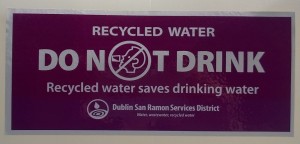 Hauling water may not be cost effective for you, but considering replacement costs of large gardens it may be worth it.
Hauling water may not be cost effective for you, but considering replacement costs of large gardens it may be worth it.
“I can’t go over the water allotment without them restricting flow. Look at the cost of letting everything die and then replacing it. That’s the driving force. We were bone dry.” – Chris Rossiter
A year ago, Danville resident Chris Rossiter received a $900 water bill. His 6/10ths acre property has a large swimming pool, grass in front and back and his wife is a “plant junkie”. He had used nearly 2,120 gallons per day to keep his backyard paradise thriving.
Now facing steep restrictions from his water company, that same bill would have been $1,540 which includes a rate increase, drought charge and penalty for using over 1,400 gallons per day. Instead, he’s cut his sprinkler usage to once a week and cut run times in half. His bill dropped to $200 and his usage is around 500 gallons per day. The ground is dry; everything is still dry.
At a recent gathering, Chris asked me what I was up to and I mentioned this blog. He was very intrigued. He had no idea that two nearby waste water treatment plants had free recycled water available to anyone that wanted to haul it, albeit in the 300 gallon variety.
Chris retired a number of years ago and has extensive knowledge in high voltage electricity, pump applications, piping and is a general DIY’er around his house. Setting up a system to haul recycled water was right up his alley and the wheels began turning in his head immediately. By the end of the event Chris already knew who had a trailer he could use, where to get a tank, and how to set it up and abide by the rules set forth by each water agency.
The Fun Begins
It took about a week to get everything setup.
Chris borrowed a trailer from his neighbor and set-off to find a tank. He looked around at local shops and saw Ace Hardware had tanks for $160 each. Via Craigslist, Chris found a farmer in Salinas that had 300 gallon totes for $50. A drive there and back with two totes cost a total of $130, cheaper than getting them locally. He bought a 2” cam lock connector from McMaster-Carr to go from his tank through a flexible pipe to his pump.
He acquired a used pool pump from a friend for $100. It was heavier than he thought and after dropping it, it also needed a new motor. $180 later, with a new motor he was ready to go. He added another cam lock fitting to the pump discharge and setup his quick disconnect station in his driveway. Now the major plumbing started.
He read my article last week about not being able to plumb recycled water to his on-site irrigation system so he set out to lay 1-1/2” PVC from the driveway to his side yard (with a connection for a separate garden hose across his driveway to the other side yard). Once in the side yard he setup a few impact sprinklers running off garden hoses setup in series.
In the backyard he has a large grass area with garden behind leading down to a creek. Chris attached sprinkler heads to PVC pipe and two metal fence posts stakes to elevate them over the yard. Similar to elevated sprinklers you would see at a farm. Tack on a couple impact sprinklers and he was in business.
Lastly, that hose that snaked across his front yard has a fire hose nozzle he purchased from Amazon which he uses for hand watering. His entire setup cost him $500-600.
Chris lives in the CCCSD service district so he can get recycled water from CCCSD. DSRSD enables non-residents to get recycled water also, so he can go there as well. Chris said “DSRSD has screwy hours but a hell of a lot of fill stations. Maybe 28 total plus 3 fill stations for people to pull into with trailers, one of them can fill my tote in 5 minutes.”
His first trip was to CCCSD and he got 300 gallons for free. His round trip mileage is 33 miles. At the going IRS rate of $0.50/mile it costs him $16.50 to get 300 gallons of recycled water. To go to DSRSD it costs him $12.00/trip for 300 gallons. Once home it takes 25 minutes to unload.
Last Friday he made four trips, two to DSRSD and two to CCCSD. On Saturday he made five. DSRSD is only open from 8AM to 12PM so he spent the afternoon driving to CCCSD as they are open till 6PM. In two days he hauled nearly 2,800 gallons of water.
On the weekends, he says he spends 15 minutes waiting to get checked in and another 15 minutes waiting to pull into the trailer area at DSRSD. They’re packed. During the week however, the lines are very short and he’s in and out quickly.
On Sundays he runs his sprinklers through an entire cycle but at 50% of normal run time. He does it so the “sprinklers will rinse everything off”. Recycled water, with its high levels of chlorides will leave ‘water-spots’ on the plant leaves when the water evaporates. The practice is a great idea.
Given the cost of hauling water and the number of trips he needs to make to meet the water demands of his yard, he said economically it’s not worth doing. I asked him why he does it and he said “I can’t go over the water allotment without them restricting flow. Look at the cost of letting everything die and then replacing it. That’s the driving force. We were bone dry. Once we get caught up, we might get down from [getting recycled water] a couple of times a day down to a couple of times a week.”
Since he just started he doesn’t know what his water usage will drop to, but it sure beats the alternative. I’ll follow up with him in a month and let you all know!

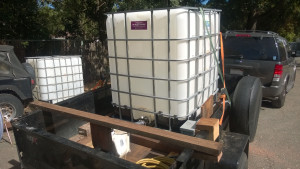
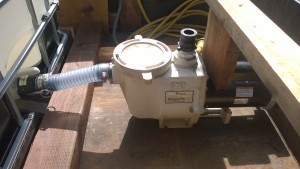
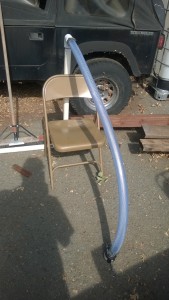
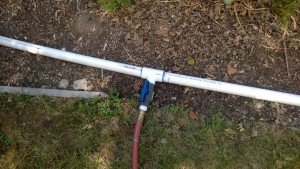
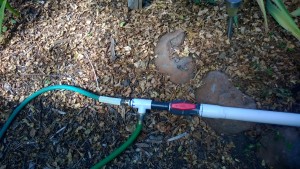
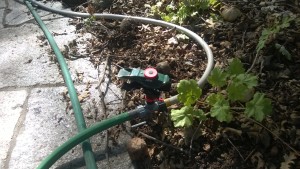
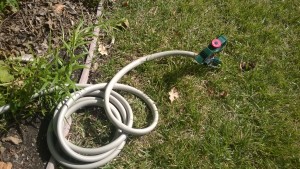
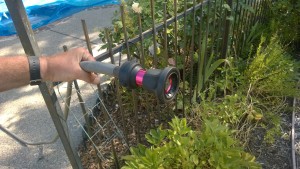
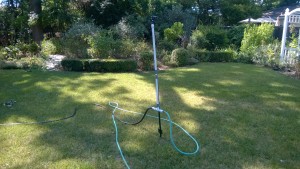
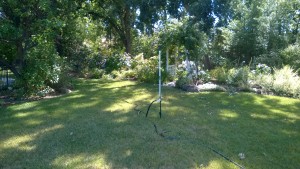
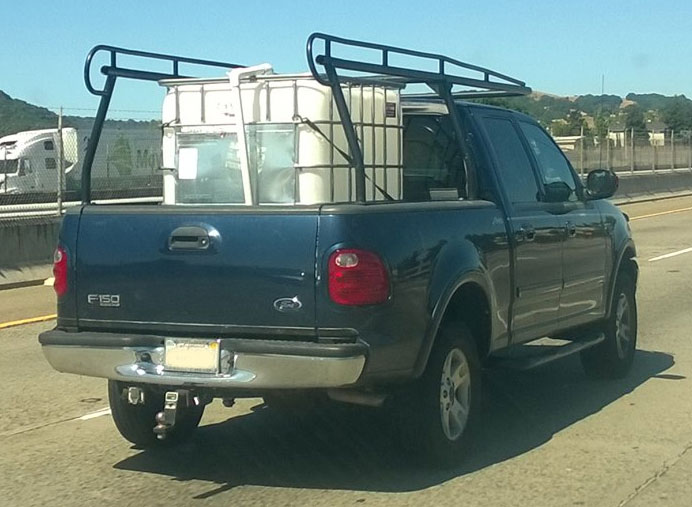
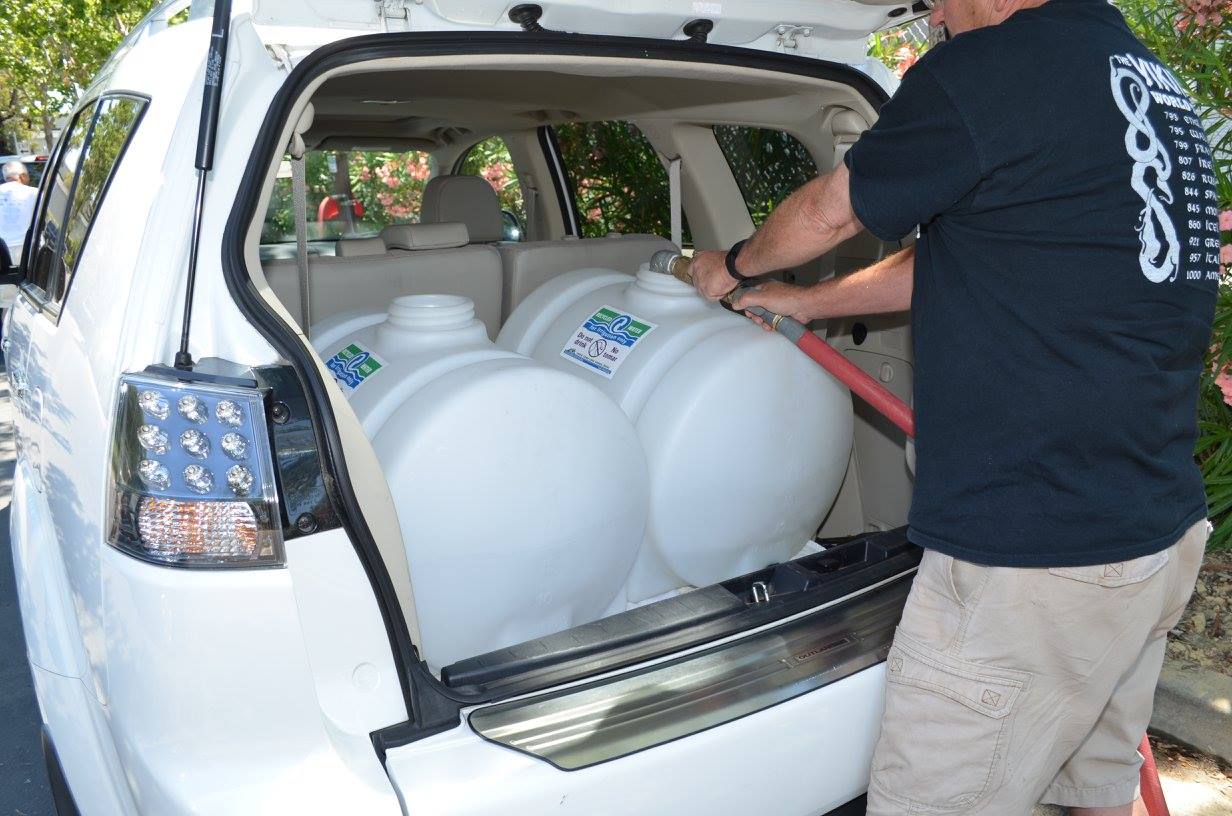
Leave a Reply